Quantitative Reasoning and Numerical Literacy
In general, and its hard to trace the de-evolution that as occurred so that personal opinion and anecdote now completely substitute for any numerical understanding of an environmental issue (or perhaps any issue). In short, numbers both scare people and do not seem to matter any more for anything. The lack of numerical literacy among policy makers can have dire consequences and we will use the Deepwater Horizon oil spill as a real life example.
First we begin with the issue of quantitative and/or numerical literacy. A simple example of numerical literacy is that if you don't understand tha 1 billion is 1000 times larger than 1 million, then its likely numbers are a foreign language to you.
Quantitative Literacy = Don't Be Afraid of Data!
Quantitative literacy is competence in the skills involved in the effective production, utilization and comprehension of quantitative information for the purposes of description, analysis, discovery, evaluation, reasoning, decision making, problem solving, and persuasion.
Furthermore, quantitative literacy involves recognizing when such skills are needed and using them appropriately and ethically. The cultivation of quantitative literacy is essential for effective living skills, for informed citizenship and for personal enrichment.
From the Washington Post Feb 5, 2009
"Statistical literacy, quantitative literacy, numeracy --Under the hood, it is what do we want people to be able to do: Read tables and graphs and understand English statements that have numbers in them. That's a good start," said Milo Schield, a professor of statistics at Augsburg College and a vice president of the National Numeracy Network.
Shield was dismayed to find that, in a survey of his new students, 44 percent could not read a simple 100 percent row table and about a quarter could not accurately interpret a scatter plot of adult heights and weights
Four Elements of Numerical Literacy:
- Measurement, Data Collection and Interpretation: what kinds of data do you need to better address and issue?
- Quantitative Expression (better termed visualization): Making compelling graphics to communicate the key meanings of data
- Evaluating Evidence vs Assertions: This means resolving personal opinion and anecdotal bullshit from evidence based reasoning.
- Quantitative Intuition: Do you have the skills to immediately recognize bullshit. If it tell you that Americans use 1 million gallons of gas a day does that number make sense to you. Is it true because the professor said so? The overall lack of quantitative intuition had serious ramifications in the initial evaluation of the Deepwater Horizon oil spill.
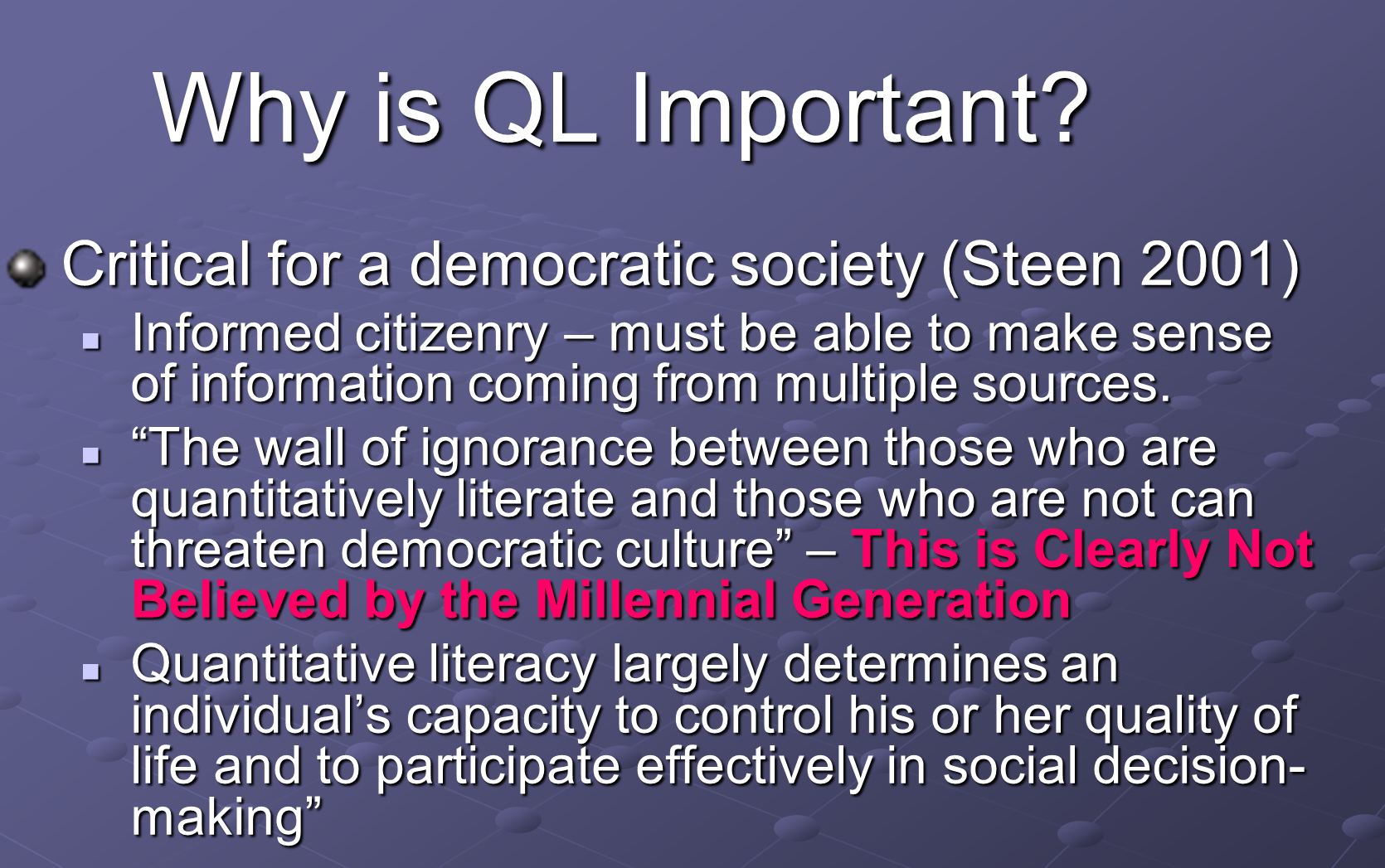
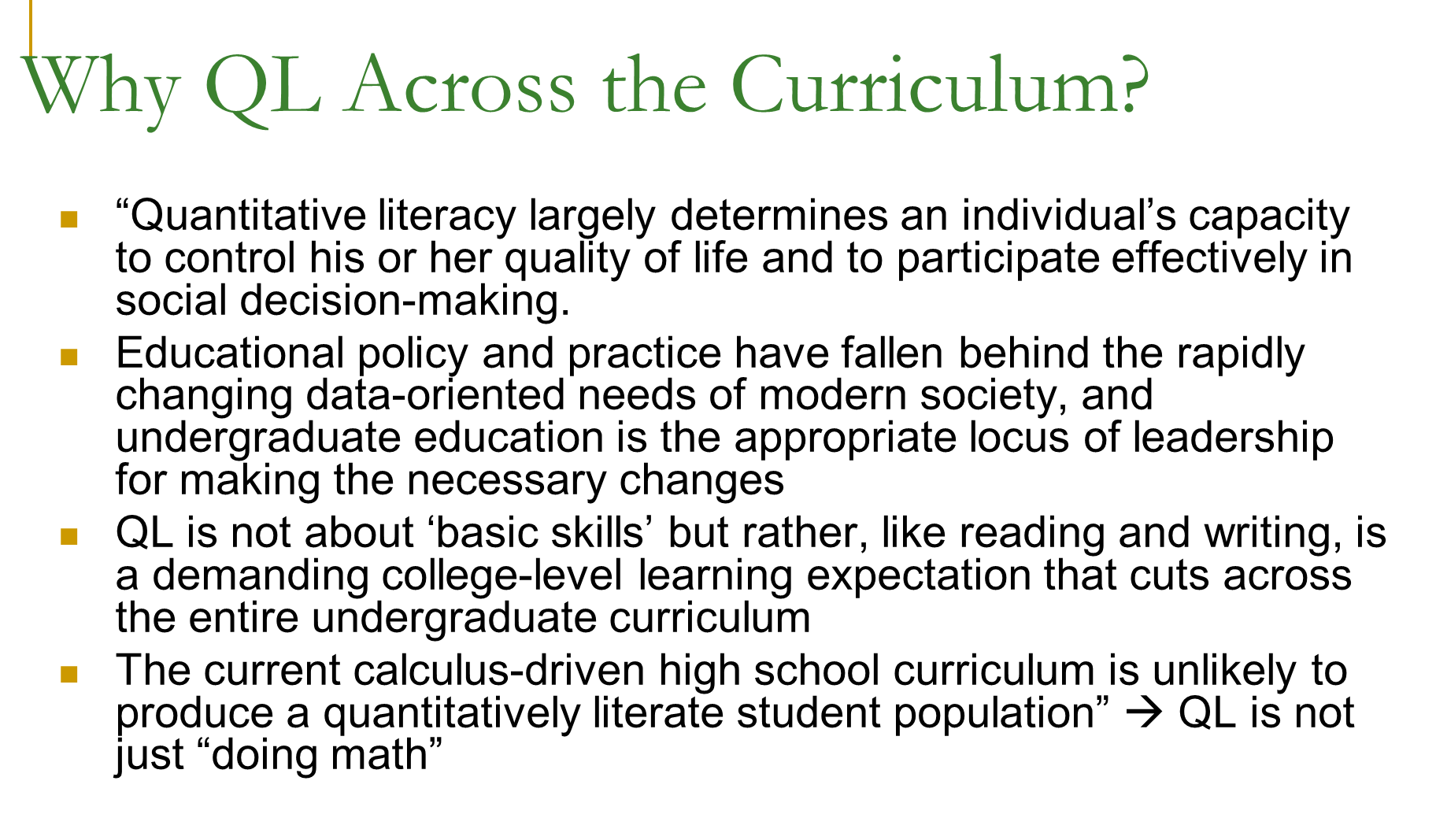
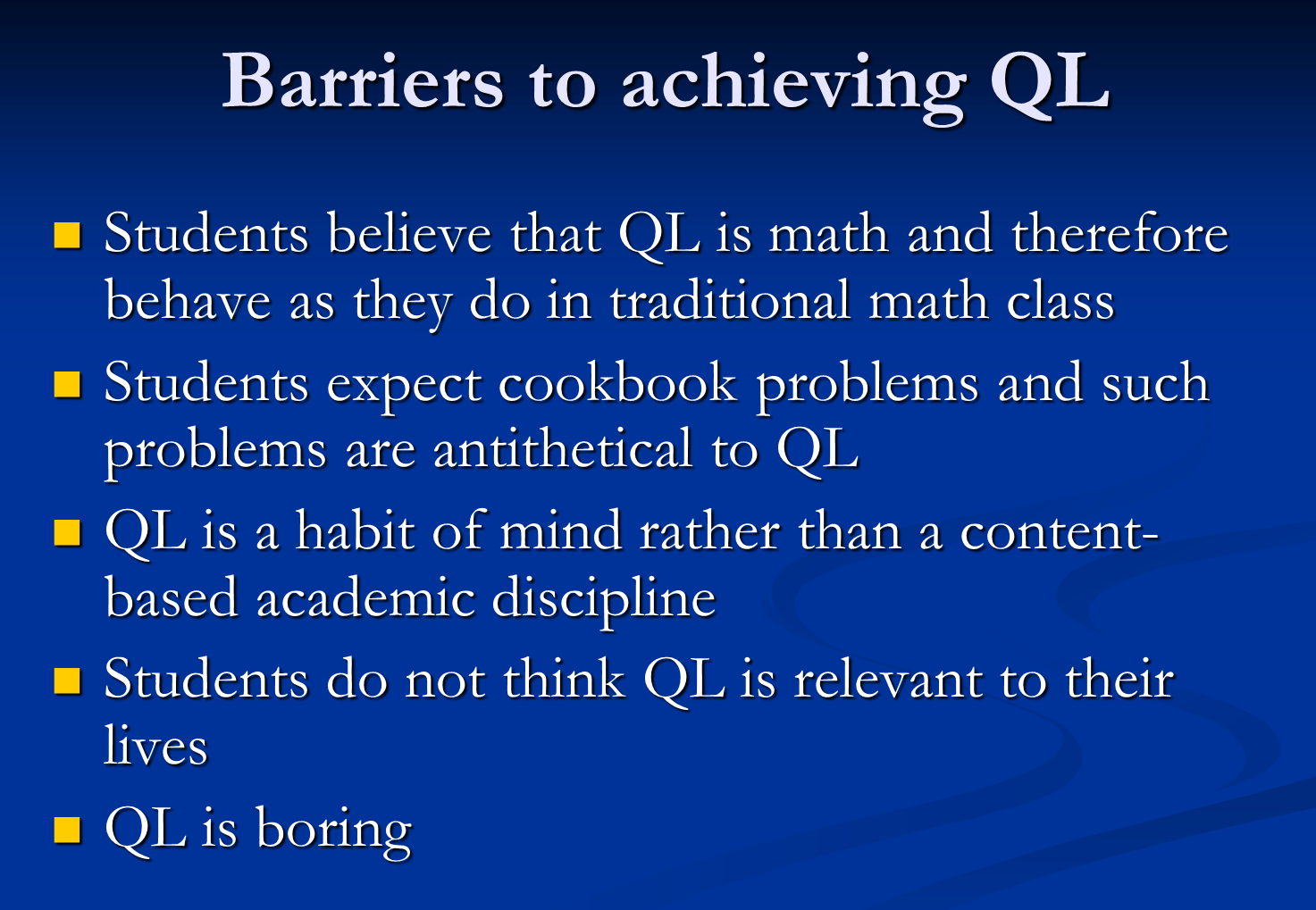
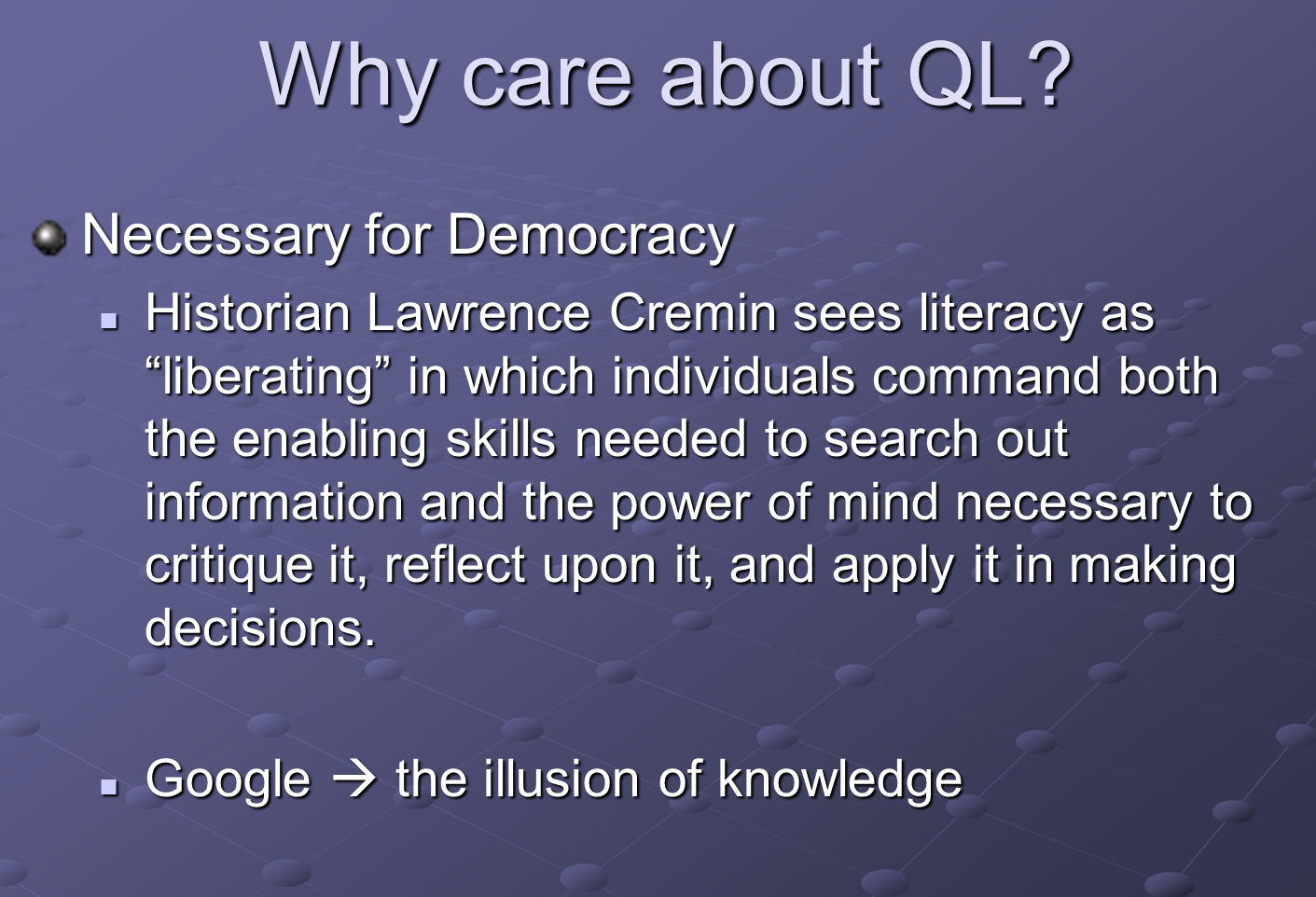
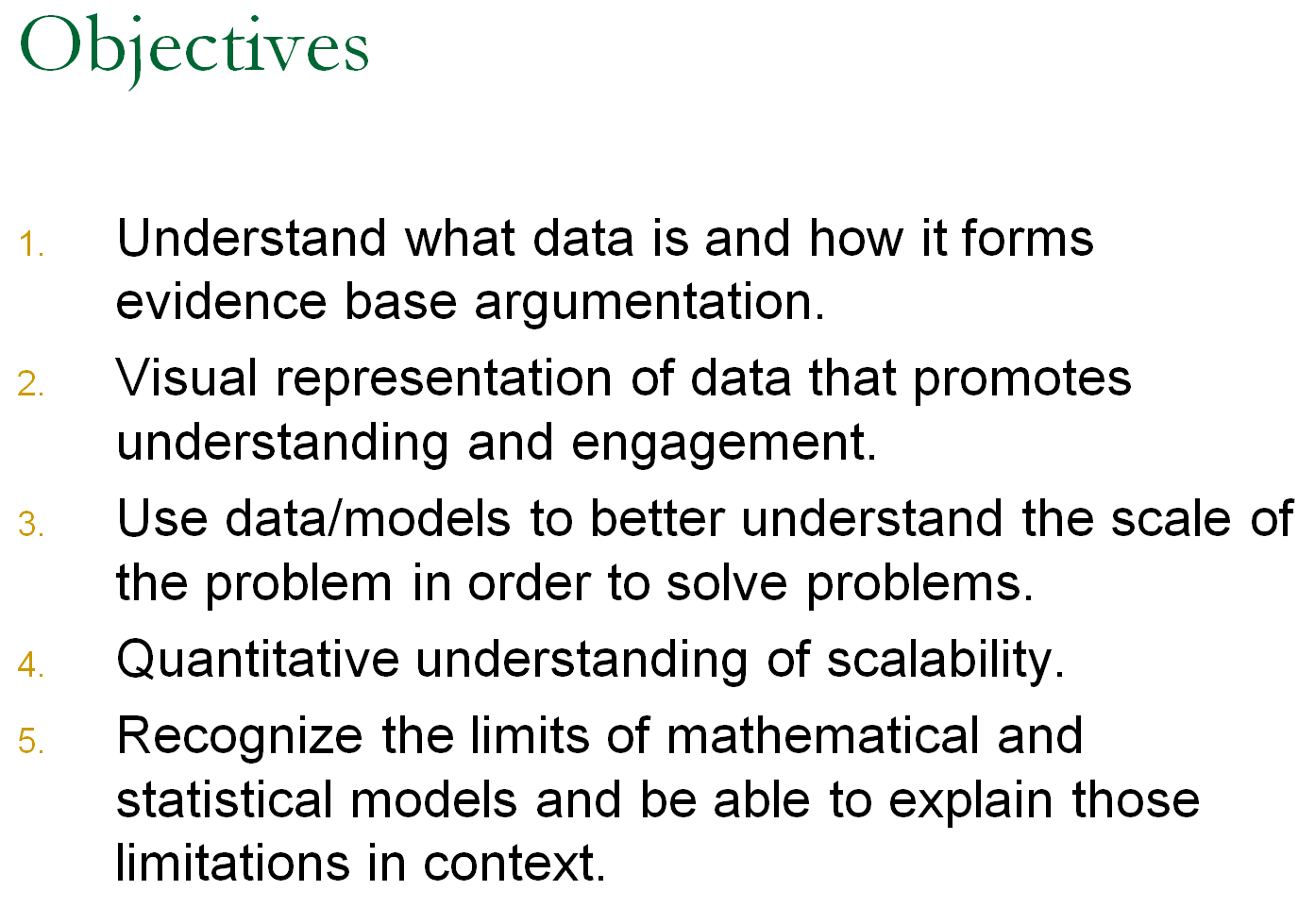
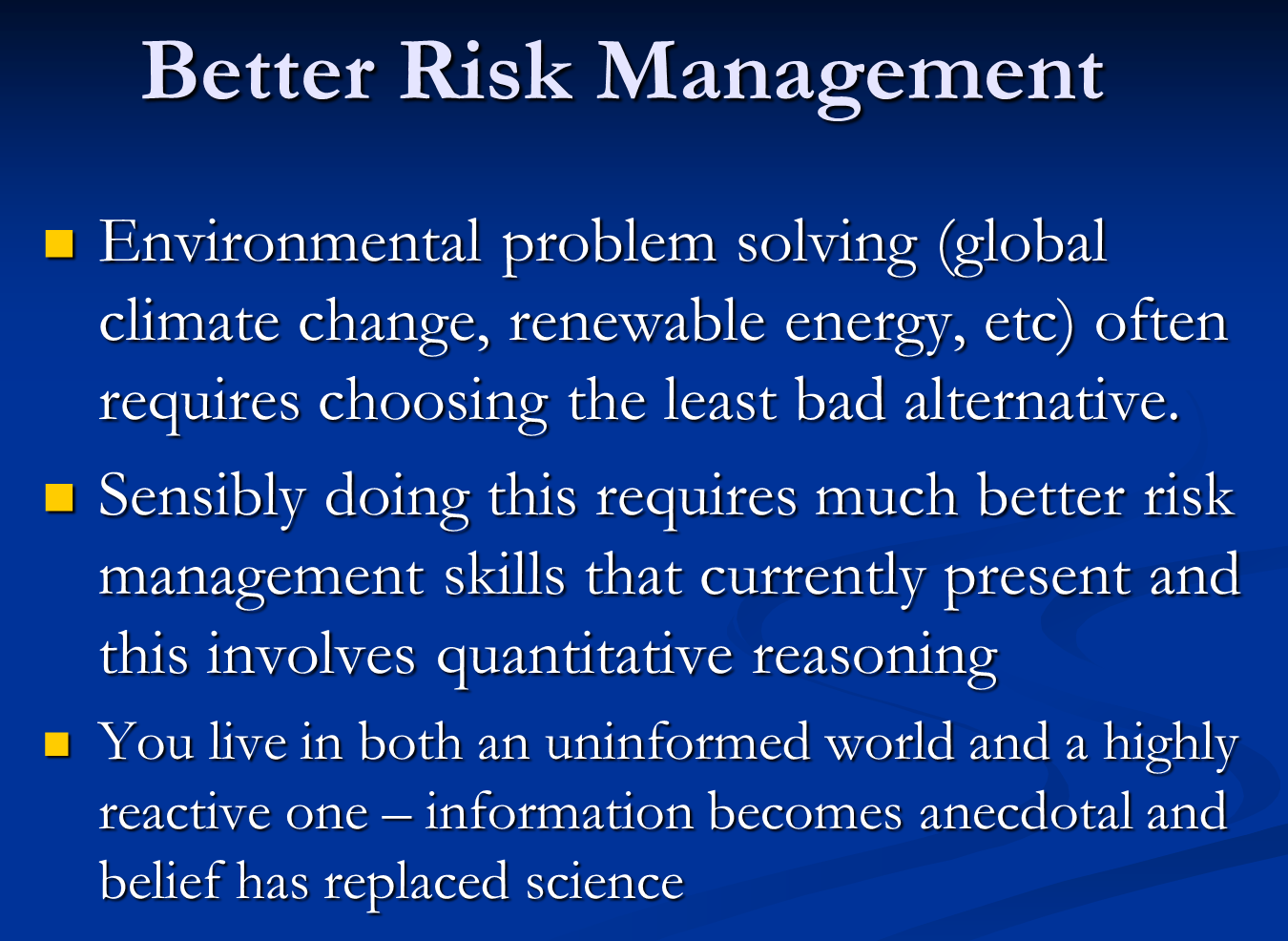
|